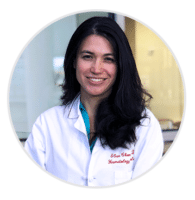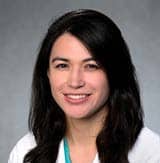Researcher Spotlight: Elise A. Chong, MD
University of Pennsylvania Perelman School of Medicine

Chimeric antigen receptor (CAR) T-cell therapy has been an effective treatment for any patients with B-cell lymphomas who don’t respond to other therapies, producing remissions in 30 to 40 percent of patients. Dr. Chong and her collaborators are seeking a way to better predict which patients will respond well to CAR T-cells before patients undergo the therapy. “To understand why CAR T-cells succeed or fail, we are studying patients’ blood samples and tumor biopsies collected before and during treatment with CAR T-cells,” Dr. Chong says. In the course of her LRF Postdoctoral Fellowship grant, Dr. Chong will study T-cell functional states (processes which occur inside the cell) in response to treatment and seek to identify ways in which patients’ tumors may suppress their immune system or prevent immunotherapies from killing lymphoma cells. “This research will guide further approaches to improving immunotherapy for patients with lymphoma.”
Dr. Chong is the inaugural Bruce D. Cheson, MD Postdoctoral Fellow, a named fellowship honoring Dr. Cheson, current LRF Scientific Advisory board member and former SAB Chair, for his commitment to supporting the Foundation and lymphoma research. She first became interested in lymphoma after working as a research assistant in the lymphoma program at Abramson Cancer Center at the University of Pennsylvania. “The ability of research to improve patients’ lives, the long-term relationships that patients and physicians develop, and the scientific questions being explored all were the impetus for my interest in lymphoma research,” Dr. Chong says, adding that this experience prompted her to change her career path from laboratory research and apply to medical school. She received her MD from the Perelman School of Medicine at the University of Pennsylvania, where she has subsequently completed her residency and is now a third-year hematology/oncology fellow.
Dr. Chong is excited for the opportunity LRF funding gives her, both in being able to address research questions and advance her career as a researcher. “After years of clinical training, I am finally able to study the types of questions I envisioned over ten years ago prior to medical school,” she says. “The LRF Award will allow me sufficient time to dive deeply into this translational research and provide essential support for both this current project as well as my future career aspirations and development.”
To learn more about CAR T, visit the CAR T-Cell Therapy Learning Center.

